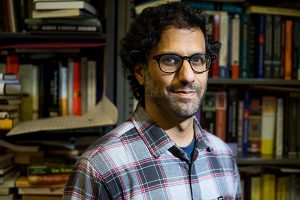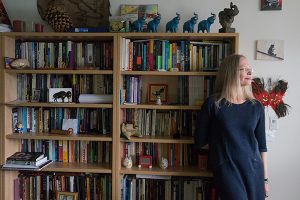Dear University Community,
Welcome back! I am pleased to be starting an exciting year with all of you at San Jose State University. We begin this new academic year with nearly 36,000 regular and special session students, a cohort of 65 tenure/tenure-track new faculty and many exciting opportunities to advance our research, scholarship and creative activities, and our student success mission.
In these early weeks, I have immersed myself in getting to know about all of you at events such as the faculty-in-residence and faculty fellows reception; a new faculty reception; and the 15th Anniversary of the Dr. Martin Luther King, Jr. Library, among other gatherings. I have also shared a bit about myself. As I said during a marathon of college welcomes on Aug. 20, I have 45 years of experience in higher education dating back to my time as a teaching fellow at New York University. It has been an honor to have had such a long career in the academy, with much of my time spent as a professor of Public Health and administrator at Montclair State University.
These have been rich experiences balancing teaching, research on women’s health issues and administrative work at a public university not unlike San Jose State, and it has been gratifying. When I first visited SJSU last year as a consultant for then-Provost Andy Feinstein, the exemplary record of scholarly accomplishment by faculty and students here impressed me. Early fall events on campus afforded an opportunity to more deeply understand who the faculty are at San Jose State, and, it was invigorating to meet so many faculty and staff firsthand.
This fall continues with many more events, including the University Scholars Series that highlights the extraordinary work of our faculty, starting with Associate Professor Aaron Romanowsky from the Department of Physics and Astronomy on Sept. 26, at noon, in the Dr. Martin Luther King, Jr. Library, Room 225/229. See the full schedule online.
We also begin the academic year with one of our own recognized with the California State University Faculty Innovation and Leadership Award. Margaret “Peggy” Stevenson founded the Record Clearance Project, a program that provides SJSU students an opportunity to work within the justice system while providing community service. These students help those with a criminal conviction expunge their records so they can have a new lease on life. Read more online.
As I shared with faculty in a memo on Sept. 4, we are launching a new Research, Scholarship and Creative Activity (RSCA) Reassigned Time program in January. It will redefine what it looks like to be a teacher-scholar at San Jose State. This program builds on a three-year project started by former Provost Feinstein to understand and develop a means through which RSCA for faculty may be equitably and fully supported by the university, and used as a way to advance the professional work of our faculty.
We recognize three broad areas of faculty endeavor – teaching, scholarship and service – and faculty are expected to be active in each area. Scholarship is a core activity for all faculty members, and scholar/artists are critically important for student development and engagement in the wider academic community. I look forward to working with college deans to implement this new program for tenured and tenure track faculty to help them succeed with their RSCA agendas while also providing our students with conceptual skills that prepare them for careers and a future we can only begin to imagine.
Let’s have a great semester!
Sincerely,
Joan C. Ficke
Interim Provost and Senior Vice President for Academic Affairs


